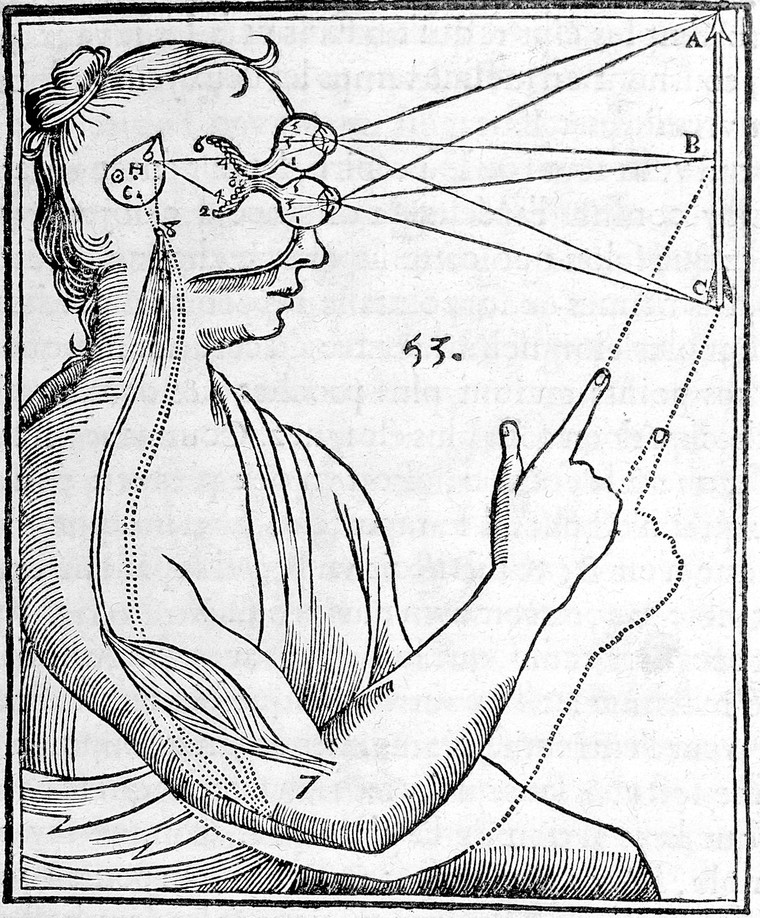
In some sense empiricism is an almost trivially true doctrine: in order to find out what the empirical world is like, some sort of empirical research is needed. And precisely in this sense empiricism is an integral part of current – and past – science.
But in philosophy empiricism has had different, more substantial meanings. The most widespread of which is undoubtedly that experience is our only or predominant source of knowledge. Now, it goes without saying that there is an enormous difference between claiming that some sensory experience is required to gain knowledge of empirical reality and insisting that all knowledge is empirical.
Since The Helsinki Circle has adopted its name to honor the Vienna and Berlin Circles, one might be tempted to assume that we share the strict empiricist credos of our predecessors. This, however, would be a misconception. To demonstrate why this is so, we will offer for your enjoyment, our dear reader, a series of blog posts which explicate the errors of excessive empiricism.
One of the great mistakes that classical British empiricism was culpable, was the idea that experience is infallible, incorrigible, and indubitable. In other words, the traditional empiricists believed that experience itself cannot be wrong, refuted, or honestly doubted. This belief was passed on to the Viennese and Berlin philosophers and some remnants of it still exist today.
The infallibility of experience does not, of course, mean that we couldn’t make mistakes concerning the things we perceive. For instance, something might look like something else, say, a rock might look like a person, if one is observing it far enough away. The old empiricists did not deny this or the possibility of mirages, hallucinations, or illusions. Instead, they merely claimed that our experiences are such as they are and this is indisputable.
Thus, if I see a hallucination of a person, hear voices, or taste something metallic, then the target of my hallucination does not exist. There is no one there, nobody is speaking to me, and there isn’t anything metallic in my mouth. Still, I nevertheless do have the sensations: I see, hear, or taste something even if there is nothing that corresponds to my experiences in the external world. And this is what empiricists have considered to be undeniable.
At first blush, all this seems rather intuitive. But, as with many other empiricist dogmas, it is refuted by empirical evidence. In this case the refutation is due to a curious version of anosognosia called Anton-Babinski syndrome. Anosognosia is a condition caused by brain damage where a person with a disability is unaware of having said disability. For instance, someone can deny that they are partly paralyzed, and instead of accepting the truth the patient might use a number of defence mechanisms to account for her inability to move.
The Anton-Babinski syndrome is a highly unintuitive and rare version of anosognosia where a blind patient believes she can see. Someone with the syndrome will confabulate visual images which she claims to see. So, for example, she might say that someone has a red shirt on even though the person actually has a blue hoodie. Therefore, Anton-Babinski syndrome shows that we can have false beliefs concerning our experiences. In fact, we can believe to have perceptions when we have none.
Usually, when people are presented with information concerning the syndrome and the conclusion that the doctrine of infallibility of experience is false, the the following objection is made: “Isn’t the Anton-Babinski syndrome just a type of hallucinating? Surely, the patients who have it, imagine visual experiences even if images are merely in their heads, right?”
Wrong. As Patricia Churchland neatly summarises:
“Are the patients with Anton’s syndrome really just mistaking visual imagery for actual vision? Drawing on anatomical data and behavioral tests, most clinical neurologists believe not. For one thing, the cortical regions needed for vision are also the regions believed to be needed for visual imagery, and these are the very ones destroyed[.]”
Patricia Churchland: Brain-Wise: Studies in Neurophilosophy (2002), p. 122
Churchland is saying here that the areas of the brain that are needed for producing visual hallucinations or visual imagery are destroyed in part or wholly with people who have the syndrome. Thus, at least in the cases where the regions do not exist at all, it is impossible that the patients are imagining things with their mind’s eye.
Churchland also points out that “patients with Korsakoff’s syndrome (alcoholic dementia) freely confabulate about any subject” (Churchland 2002, 122). Hence, unconstrained confabulation is something that can happen even in other situations. Under certain neurological circumstances, we have the ability to fool ourselves of things that seem as certain as can be. Some researchers have even called confabulation in Anton-Babinski syndrome a type of “honest lying” (McNulty & Harbison 2015).
To sum up, the sincere belief of experiencing something does not guarantee that one is actually experiencing something. There is no choice but to accept fallibilism even with respect to perceptions. So much for the incorrigibility, infallibility, and indubitability of empirical knowledge.
References
Chen, Jiann-Jy; Chang, Hsin-Feng; Hsu, Yung-Chu & Chen, Dem-Lion (2015): “Anton-Babinski syndrome in an old patient: a case report and literature review” Psychogeriatrics 5 (1), pp. 58–61.
Churchland, Patricia Smith (2002): Brain-Wise: Studies in Neurophilosophy, Cambridge, MA: MIT Press.
Crumley II, Jack S. (2009): An Introduction to Epistemology, Peterborough: Broadview Press.
McNulty, M. & Harbison, J. (2015): “Honest Lying: Anton-Babinski Syndrome” Irish Journal of Medical Science 184 (Suppl. 7), pp. S287–S288.
O’Brien, Daniel: “The Epistemology of Perception” The Internet Encyclopedia of Philosophy, URL = https://www.iep.utm.edu/epis-per/
Perez-Ceballos, Sanlly; Fernandez-Rodriguez, Francisco T.; Shah, Neel; Wani-Parekh, Priyanka; Gondin-Hernandez, Lyan; Gonzalez-Martinez, Jose L.; Porres-Muñoz, Mateo & Porres-Aguilar, Mateo (2017): “The Eyes Are Useless When the Mind Is Blind: A Rare Case of Anton-Babinski Syndrome in Hepatic Encephalopathy” The American Journal of Medicine, 130 (5), pp. e215–e216.
Ramachandran, V. S. (1995): “Anosognosia in Parietal Lobe Syndrome” Consciousness and Cognition 4 (1), pp. 22–51.
Ramachandran, V. S. & Blakeslee, Sandra (1998): Phantoms in the Brain: Probing the Mysteries of the Human Mind, New York: Morrow.

One thought on “The Errors of Empiricism: Infallibility of Experience”